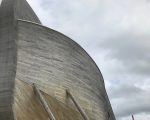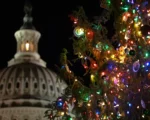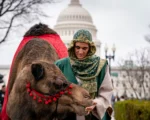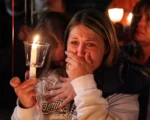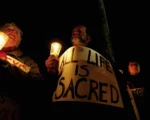Unsettling Advent 2023, Day 13
Rev. Janna Louie, chief of staff for the Baptist Joint Committee for Religious Liberty, reflects on Psalm 80 and how anxieties can be transformed by collective grief and lament.
Before He Was House Speaker, Mike Johnson Represented a Creationist Museum in Court. Here’s What That Episode Reveals About His Politics
Word&Way trustee and scholar of American evangelicalism William Trollinger argues that Johnson’s association with Ark Encounter makes sense given the strong connection between Young Earth Creationism and Christian Right politics.
Unsettling Advent 2023, Day 12
Many churches hold Blue Christmas services that allow people a sacred space for mourning. Perhaps the laments that come from political loss also need to be acknowledged in this season of anticipation.
Unsettling Advent 2023, Day 10
We live in a time of great precariousness and it is important to be reminded that the only kingdom sure to last is the kingdom of God.
Unsettling Advent 2023, Day 9
Often it doesn’t seem like Jesus was terribly concerned with politics, and certainly not with obtaining earthly power. But he was playing the long game of spiritual, social, and yes, political transformation.
Unsettling Advent 2023, Day 8
Kicking off this week's theme — Advent in a time of political anxieties — Rev. Dr. Kristel Clayville contemplates how changes in our political leadership trickle down to our everyday decisions.
Unsettling Advent 2023, Day 7
Despite the horrors of ancient and current tyrannies, genocidal regimes, profit-driven greed, religious charlatans, social bigots, and political hypocrites, the heart of Advent is that God will not give up on humanity and the world.
Unsettling Advent 2023, Day 6
Rev. Lauren Bennett reflects on her experience with a state execution this year and how faith requires us to bring softness to hard places while opening ourselves to meet Jesus in unlikely faces.
Unsettling Advent, Day 5
Many things have changed since ‘Let anyone among you who is without sin be the first to throw a stone at her’ was written, but not who receives the harshest punishments: those with the least social power.
The Man Behind the Woman (Pastor)
Rev. Angela Denker explores the phenomenon of non-ordained men married to women who are pastors. So simple. So revolutionary. So threatening to many American Christians.


